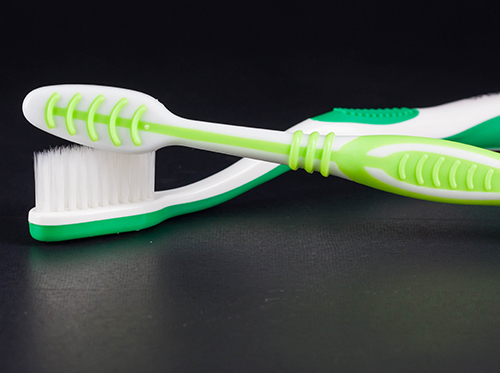Wiggle Room
April 16th, 2025

When you’re pregnant, you expect physical changes. That’s part of the excitement of the journey! What isn’t expected—and not nearly as exciting—is when your familiar smile seems to be changing as well.
If you’ve noticed that your teeth feel loose, or that your regular tooth alignment has shifted, you might be experiencing one of the unexpected, but quite common, side effects of pregnancy—tooth mobility.
How is this “wiggle room” possible? After all, you’re making sure that you’re eating a diet rich in protein, vitamins, and minerals, including calcium, vitamin D, and all the other nutrients which keep teeth and gums healthy. You’re brushing and flossing regularly to prevent cavities and gum disease. You haven’t changed your healthy dental habits, so why are you seeing different results?
The answer lies in the hormonal changes which occur with pregnancy. Your body has significantly increased production of hormones such as estrogen, progesterone, and relaxin. One of the benefits of these higher hormonal levels is their relaxing effect on your ligaments and joints. Relaxed ligaments and joints help make pregnancy and childbirth easier.
But you can’t target hormones just where they’ll be most useful. An increase in hormones affects the ligaments and joints throughout your body. And while this explanation might seem unrelated to loose teeth, it is, in fact, the “root” of the matter.
A complex support system holds our teeth securely in their sockets. Instead of being rigidly fused to the jaw, each tooth root is surrounded by a periodontal ligament within the socket. This ligament is largely made of flexible connective tissue, and attaches to both the root of the tooth and the bone tissue of the jaw, holding the tooth in place. Its flexibility helps cushion your tooth from pressure and impact, and allows the tooth movement which makes orthodontic work possible.
The hormones which relax ligaments and joints throughout the body have that same relaxing effect on the flexible ligaments and joints in the mouth. So it’s not uncommon to find that your teeth feel a bit looser, or that your customary tooth alignment has shifted, or that you’re experiencing discomfort in your jaw joint, especially if you grind or clench your teeth.
Fortunately, while loose teeth are alarming, it’s most often only a temporary condition. Your teeth and ligaments should return to their normal, stable status after your baby is born. But because dental health can impact on your pregnancy, see us if you notice any changes in your smile. We want to rule out any other causes of tooth mobility, including gum disease, tooth abscesses, or other serious conditions.
Other proactive prenatal tips to keep your smile its healthiest?
- Call us when you learn about your pregnancy. We can offer suggestions for caring for yourself and your dental health during this exciting time.
- Keep up with your dental hygiene. Brushing and flossing are more important than ever to keep your gums healthy.
- And, because your gums might be more prone to gingivitis now, extra cleanings as needed can keep plaque buildup from forming.
- Don’t forget your regular appointments at our Middleton, WI dental office for exams and cleanings. We want to help prevent any small problems from becoming larger ones.
Pregnancy is a time of many physical changes. Dr. Joel Hartjes and Dr. Jon Szewczyk will work with you to ensure that one thing which remains constant is your beautiful, healthy smile!


